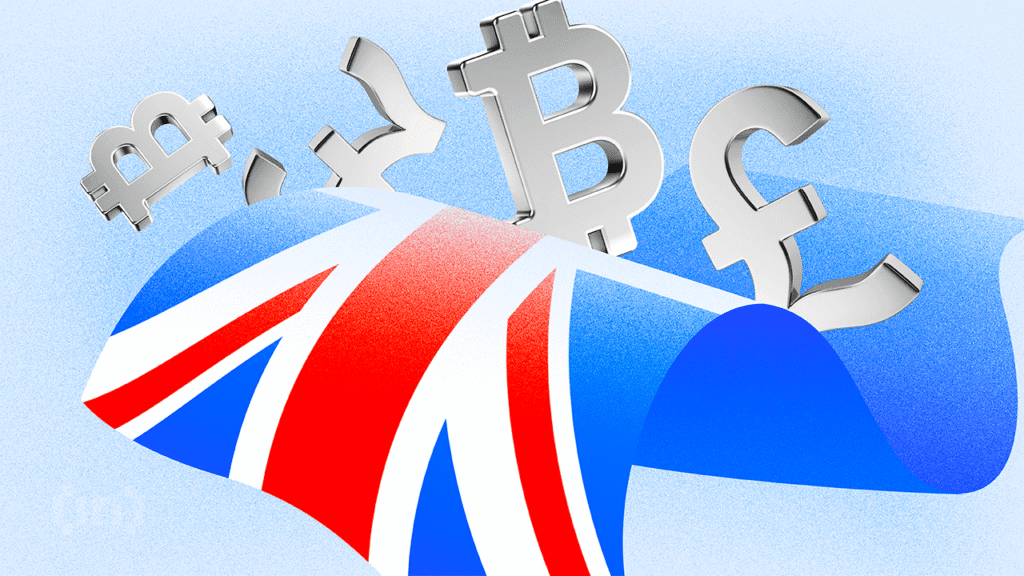The UK made headlines this week after revealing it was considering selling $7 billion worth of Bitcoin, which was confiscated during the 2018 law enforcement seizure. The extra cash comes at a critical time for the UK as it tackles its fragile financial position.
The UK is considering selling seized Bitcoin, but doing so could result in billions of opportunities being lost. Mark Pierce, the general counsel of Alkimi, emphasized that this situation presents a complex dilemma rather than a clear solution for the UK.
£5 billion questions for British leaders
British Prime Minister Rachel Reeves is currently sitting on over 61,000 Bitcoin, more than £5 billion.
The substantial stockpile was due to the seizures of major law enforcement agencies in 2018, disrupting major money laundering operations in the UK. The funds came from China’s large Ponzi scheme, which had scamned about 128,000 Chinese investors since 2014.
Recent reports suggest that Reeves is considering selling these forfeited Bitcoin assets to address the UK’s weakened financial situation. The government faces significant financial challenges with a fiscal deficit of £57.8 billion.
The UK’s national debt has also reached a historically high level, currently reaching £2.87 trillion. These financial pressures, combined with increased costs to pay interest on their debt and increased demand for government spending, create a major political challenge for the current government.
Given the context, it is no surprise that the Prime Minister is considering filling the gap with revenue from selling Bitcoin stockpiles.
Walking the UK’s fiscal tightrope
The UK government selling seized bitcoin could help close the current hole in its finances.
“Obviously, sales can help block the UK’s economic deficit and reduce future spending or tax increases,” Pierce told Beincrypto, adding, “If assets are seized, it makes economic sense to recycle those assets into a system where cash can make money.”
Such injections could reduce further government borrowings and ease pressure on national debt and related interest payments.
Skeptics who recognize Bitcoin as a highly unstable and counterproductive asset are also celebrating the move.
“(Some) argue that, given that it is theoretically possible to reduce the value of BTC to zero, we need to achieve the return of digital assets as purely as possible,” Pierce added.
The government believes it holds billions of pounds worth of speculative assets when public finances are tense. Sales allow this capital to be deployed instantly.
The amount of money sold by the government is small compared to Bitcoin’s market capitalization, which minimizes the market impact.
“The current value of circular BTC is over $2 trillion. Therefore, the amount discussed represents less than 0.5% of the asset value. Currently, the daily volume of BTC transactions is around $70 billion.
However, he also questioned whether it would be wise for the government to sell these assets in the short term.
Whether to sell it?
Jian Wen, one of the key money laundering facilitators behind China’s Ponzi scheme, was convicted and sentenced, but the rest of the criminal case is still ongoing.
Specifically, the fate of Bitcoin stockpiles remains subject to ongoing civil recovery procedures. The UK government is actively seeking to formalize ownership of Treasury assets.
Until this process is finalized, Pierce believes the government should not sell its holdings.
“The numbers in the headline are important, but you need to remember that just because assets were seized doesn’t necessarily mean that the UK is free to dispose of them. There have been many cases of misconducted assets that you have to go back,” he said.
This waiting period also provides a welcome delay for Bitcoin enthusiasts. Bitcoin enthusiasts believe the UK should hold Bitcoin to increase its value.
High cost for early sales
By selling seized Bitcoin, the UK government will provide immediate financial benefits, but also provide the risk of forfeiture of major future profits.
Selling now means that you can lock up your current value and confiscate the billions of pounds that will be generated if Bitcoin continues to rise. This risk has already been compared to when former Prime Minister Gordon Brown sold most of the UK’s gold reserves.
“All Prime Ministers are cautious about making decisions to sell assets that could increase their value. Gordon Brown’s decision to sell a portion of the UK’s gold reserve between 1999 and 2002 achieved sales revenue of $3.5 billion.
The UK can also look to its German neighbors as examples of missed opportunities. Last July, Germany sold approximately 50,000 BTC for over $28.9 billion. Authorities reportedly chose to sell due to concerns about cryptocurrency volatility.
Shortly after sales, Bitcoin prices continued to move upward. Today it’s resting at $118,400. Arkham Intelligence estimated that if Germany had held Bitcoin, its value would be $5.24 billion by May 2025.
What’s ahead: Blueprints of seized codes
The UK government faces a highly contested decision. The billions of pounds of immediate pimples from seized Bitcoin sales provide a vital lifeline for its tense finances, but this must be carefully weighed against important gambling that could miss out on even greater future profits.
What it decides will shape a global conversation about how governments should manage digital assets born from illegal activities.
Disclaimer
Following Trust Project guidelines, this feature article presents the opinions and perspectives of industry experts or individuals. Although Beincrypto is dedicated to transparent reporting, the views expressed in this article do not necessarily reflect the views of Beincrypto or its staff. Readers should independently verify the information and consult with experts before making decisions based on this content. Please note that our terms and conditions, privacy policy and disclaimer have been updated.

